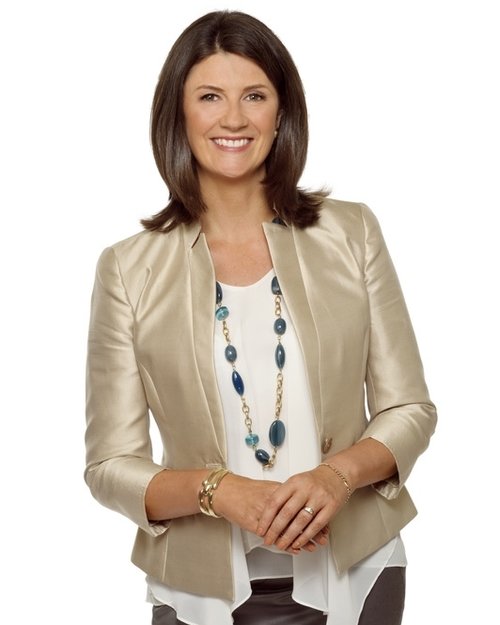Dr. Lea Waters

Lea helps parents, educators and organizations make a small switch that makes a big difference in overall wellbeing
Topic Categories:
Fee Range: Contact Speaker Exchange Agency
- Psychologist
- Researcher
- Speaker
- Author
*Fee ranges are presented as a guideline only. Speaker fees are subject to change without notice. For an exact quote, please contact your Speaker Exchange Agency representative.
Lea is one of the world’s leading experts on Positive Education, Positive Organizations and Strength-Based Parenting and Teaching. As a University researcher, Lea turns her science into strength-based strategies to help organizations, educators and parents around the world build resilience in their employees and children, helping them to thrive.
Lea is the President of the International Positive Psychology Association, serves on the World Happiness Council’s Council of Happiness & Education, and is the founding Director of the Centre for Positive Psychology at the University of Melbourne, where she’s worked for more than 20 years.
Lea helps parents, educators and organizations make a small switch that makes a big difference in overall wellbeing.
As humans, we’re wired to focus on the negative and zoom in on what’s “off” — which can be hugely helpful when your life’s at stake, but for most of us, it’s a survival mechanism that’s outdated, and doing more harm than good. Lea proposes a better way for doing things. She says we can short-circuit our negative defaults by making a mental switch that flicks to shift our attention from weaknesses to strengths, and from the negative to positive news around us.
In her TEDx talk, Warning: Being Positive Is Not For The Faint Hearted, Lea explores how we can spread positive messages in an effort to override the dominant message of fear and scarcity and make a collective difference in the world by spreading hope and happiness.
In her book, The Strength Switch, Lea says that the strength-based approach gives us the power to live the good life by drawing on our most abundant inner resources (our strengths!) When we use the strength-based approach with children, they internalize the idea that they have strengths, and they learn to use them to take charge of their life.
Three decades of research clearly show the advantages of taking a strength-based approach for children and adults alike, including: great levels of happiness and engagement, better work performance, increased levels of self-esteem, and enhanced ability to cope with stress and adversity.
Lea is passionate about helping people all over the world make the Strength Switch.
Lea has worked with the Chinese International School in Hong Kong, Ridley College in Canada, and Columbia Grammar and Preparatory School in the U.S., as well as hundreds of schools in Australia. She holds affiliate positions with Cambridge University’s Well-being Institute and the University of Michigan’s Center for Positive Organizations; and has spoken at the European Positive Psychology Conference, the Mexican Conference on Happiness and the International Positive Education’s World Congress, to name few. Lea is also the Patron of Flourishing Education Japan.
Her Positive Detective and Visible Wellbeing programs are being used by schools in the U.S., U.K., Canada, Finland, Mexico, China, Hong Kong, Singapore, Indonesia, Ghana, New Zealand and Australia.
Lea’s book The Strength Switch has been translated into Chinese, Korean, Taiwanese, Japanese, Hungarian, Arabic, Russian, and French. It was also named one of the top reads for 2017 by Greater Good Magazine, and was the top new release in the parenting category on Amazon.
Lea was featured in the ABC TV documentary Revolution School, and has been featured in The Atlantic, The Washington Post, TIME, The Wall Street Journal, The Guardian and Success Magazine. As a researcher, she’s published more than 100 scientific journal articles.
In 2015, Lea was listed as one of Australia’s Top 100 Women of Influence by the Australian Financial Review and Westpac.
Lea’s top strengths include: humor, curiosity and kindness. She lives with her husband and two children in Melbourne, Australia.
Parenting is simultaneously the most joyous and the most stressful role. It is overwhelming, not only due to the pressure parents face juggling work and family; but also due to the burdens our children face – intense academic pressures, social media, cyberbullying, selfharm trends, alcohol, teen suicide and so on.
The temptation is to pull our kids close to protect them…maybe even over-protect them. But we can’t be there for our kids all the time – it’s exhausting, it’s practically impossible and it’s not effective in the end. Not to mention the fact that our kids don’t want us to be there all the time. They need their space just like we do.
We can’t always protect our kids from the outside world but we can build them up from the inside and make them psychologically strong. So, what does that look like? This is a question Lea Waters PhD has been researching, both as a mother and as a psychologist, for the past 15 years.
What Lea’s research shows is that parents can build inner resilience in their kids by using the science of Strength-Based Parenting (SBP) to help their children see and use their own strengths to navigate life’s challenges. In fact, her published research has shown that SBP is linked to kids having:
- higher levels of achievement;
- increased levels of life satisfaction and self-esteem;
- reduced risk of depression and anxiety; and
- better ability to cope with stress and adversity such as friendship issues and homework challenges.
In her presentation, based on her book The Strength Switch: How the New Science of Strength-Based Parenting Can Help Your Child and Your Teen to Flourish, Lea helps parents steer themselves away from negativity and criticism by offering a scientifically proven strength-based approach to parenting. She shares positive psychology tips parents can use to cultivate their child’s inherent strengths. Parents leave motivated to make changes immediately after Lea shares how this small shift in approach can help their children build resilience, optimism and achievement.
After attending parents will be able to:
- Recognize three elements that make up a true strength to more easily and consistently discover talents in children;
- Use specific techniques to deal with problem-behaviours in more constructive ways; and
- Interact with kids using positive emotions to deal with difficult situations and emotions.
FORMAT: 45 to 60-minute keynote; half and full-day workshops.
IDEAL AUDIENCE: Anyone raising or working with children; such as parents, teachers, family therapists, school administrators, psychologists.
What is the purpose of Education?
According to the United Nations Right of the Child Convention (UNICEF), education should seek to develop each child’s personality and character as much as it develops numeracy and literacy. This same idea is proposed by the World Health Organization (WHO), the United Nations Educational, Scientific and Cultural Organization (UNESCO) and the Organization for Economic Development Co-operation (OECD), who are all placing emphasis on students learning wellbeing skills at school.
Calls from these high-profile international bodies have led to an alliance between researchers in the two areas of positive psychology and education – a field known as positive education – to help schools find ways to develop both academic skills and wellbeing skills in their students.
“A school curriculum that incorporates wellbeing will ideally prevent depression, increase life satisfaction, encourage social responsibility, promote creativity, foster learning and enhance academic achievement.” (Dr Lea Waters, 2014)
In this presentation, Lea Waters PhD shares the trends, evidence and advancements occurring in the rapidly growing field of positive education. She’ll share her extensive research which not only confirms the beneficial impact of positive psychology programs on student wellbeing and achievement but also on staff.
Having helped schools to implement positive education in Australia, New Zealand, Denmark, Hong Kong and China, Lea Waters PhD weaves together her science with concrete school examples and best practices to provide the audience with the compelling case for adopting positive education in schools.
Audience take aways:
- Key research findings that clearly links wellbeing and academic achievement;
- Best practices for introducing and taking the journey to practicing positive education in their school; and
- Practical methods for how to embed positive education into the classroom.
FORMAT: 45 to 60-minute keynote; half and full-day workshops.
IDEAL AUDIENCE: Principals, School Administrators, Teachers, Teaching Assistants, School Counselors, Psychologists, Schools Nurses, Mental Health Staff, and Parents.
Student wellbeing has become a focus of international education policy for globalorganizations such as the World Health Organization (WHO), the United Nations Children’s Fund (UNICEF) the United Nations Educational, Scientific and Cultural Organization (UNESCO). The Organization for Economic Co-operation and Development (OECD) Centre for Educational Research and Innovation reports that more than 70% of OECD countries have wellbeing as an explicit goal of their National Curriculums.
Schools are challenged to turn this global wellbeing policy into concrete school practice. Lea Waters PhD has spent the past decade around the world consulting with schools implementing wellbeing programs. She discovered that traditional wellbeing programs were not having the desired impact.
To address this problem, Lea Waters PhD, a trained psychologist and positive psychology expert, designed Visible Wellbeing™ which combines the science of wellbeing with the science of learning to make wellbeing visible in all classes and across co-curricula. Visible Wellbeing is not a set curriculum; it is a flexible approach which can be applied across any subject matter, and in all contexts – early learning, primary, secondary, and in the staff room. With the VWB approach, academic learning and wellbeing are truly integrated.
Visible Wellbeing is the culmination of 20 years of high-impact research in psychology and education conducted and published by Lea Waters PhD. At the core of Visual Wellbeing is the SEARCH framework, developed by Dr Waters from her large scale bibliometric analysis of over 18,000 journal articles.
In this presentation, Lea shares the Visible Wellbeing tool kit of flexible wellbeing practices that go beyond traditional wellbeing programs. She provides techniques that help teachers to use the learning process itself as a delivery mechanism to build student wellbeing. Visible Wellbeing aims to help everyone thrive at school and the training and techniques shared are equally relevant to staff, teaching, non-teaching, and parents as they are to students as a way to build a culture of wellbeing across the entire school. Lea weaves together her science with concrete school best practices to provide the audience with the compelling case for adopting a Visible Wellbeing approach in schools.
Audience take aways:
- Knowledge of techniques that help teachers to use the learning process itself as a delivery mechanism to build student wellbeing;
- Able to help students and staff to more clearly see their own and other’s wellbeing using Visible Wellbeing practices;
- Understand how to use the SEARCH framework to help students and staff more systematically build wellbeing; and
- Facilitate learning through the visible wellbeing classroom process.
FORMAT: 45 to 60-minute keynote; half and full-day workshops.
IDEAL AUDIENCE: Principals, School Administrators, Teachers, Teaching Assistants, School Counselors, Psychologist, Schools Nurses, Mental Health Staff, and Parents.
We’ve all heard the saying “play to your strengths”. But what does this really mean when it comes to work? As leaders, how can we help our staff play to their strengths?
A recent study in the US found that only 26% of workers find the opportunity to use their strengths at work. Yet this same study found that 64% of employees believed that building on their strengths will make them more successful at work. Research by the Gallup Institute found clear bottom-line benefits to being a strength-based workplace including lower turnover, increased productivity and happier customers.
The first step in becoming a strength-based workplace is to understand what strengths are. Most of us define strengths as the things we are good at it. If this is your understanding of strengths then are you are partly right….but that’s not the full picture. Scientists have shown that for something to be a true strength it takes more than good performance. Strengths have three elements: high performance, high energy and high use.
In other words, strengths are things you do well, do often, and do with energy. Think of the staff member who is good at client management but consistently resists making client calls and is clearly de-energized after the call. There’s performance, but little energy or motivation. This means that even though he is good at, and has the skills for client management, it’s not a true strength. Hardly a recipe for an engaged, self-motivated employee.
Knowing about the three aspects of a strength prevents you from falling into the trap of appointing someone who happens to be good at the job but is not energized or motivated. In addition, knowing about the three aspects of a strength helps you, as a leader, to more accurately and consistently identify your employee strengths and to craft a role for them that taps into their skills, energy and motivation.
This presentation weaves together science from organizational psychology, business and positive psychology together with workplace examples to provide the audience with an understanding of strengths at work.
Audience members will learn:
• The benefits of strengths at work.
• What blocks us from seeing strengths.
• How to identify and amplify strengths.
FORMAT: 45 to 60-minute keynote; half and full-day workshops.
IDEAL AUDIENCE: CEO’s, Senior Leaders, Middle Level Management, Team Leaders, Human Resource Managers, Training and Development Experts, Organizational Consultants. This talks fits corporations, not-for-profits, schools, universities, hospitals, Entrepreneurs, start-ups and anyone interested in creating workplace culture that allows people to thrive.
Does your workplace suffer from Gratitude Deficit Disorder?
While much time and effort is invested by leaders in creating a successful business strategy, it is arguably more difficult for leaders to shape culture – despite the fact that culture has a huge impact on employee happiness and business results. Indeed, as Peter Drucker, leadership guru, so famously said “Culture eats strategy for breakfast.”
Many organizations suffer from Gratitude Deficit Disorder. Researchers at University of California, Berkeley, found that that only 10% of employees reported that they regularly express gratitude at work. Curiously, almost all employees reported that gratitude was important and 93% reported that grateful bosses are more likely to succeed. Clearly, there is a mismatch between the importance placed on gratitude and the actual expression of gratitude in the workplace.
In my own research on the application of positive psychology to business cultures I have found that gratitude is a core, but often overlooked, aspect of creating a healthy workplace culture.
In fact, my published research has shown that gratitude accounts for close to 25% of job satisfaction and is linked to:
• Higher levels of hope and optimism.
• Better work relationships.
• Greater commitment to the company’ mission and strategic direction.
This presentation weaves together science from organizational psychology, business and positive psychology together with workplace examples to provide the audience with an understanding of gratitude at work. Why it is important. How they can foster more gratitude and what benefits they can expect when they do.
Audience members will learn:
• The benefits of gratitude at work
• Why gratitude is supressed at work.
• How to foster more gratitude at work
FORMAT: 45 to 60-minute keynote; half and full-day workshops.
IDEAL AUDIENCE: CEO’s, Senior Leaders, Middle Level Management, Team Leaders, Human Resource Managers, Training and Development Experts, Organizational Consultants. This talks fits corporations, not-for-profits, schools, universities, hospitals, Entrepreneurs, start-ups and anyone interested in creating workplace culture that allows people to thrive.
Want to bring Dr. Lea Waters to your next event? Please tell us a little about your event, and we will get back to you shortly!




